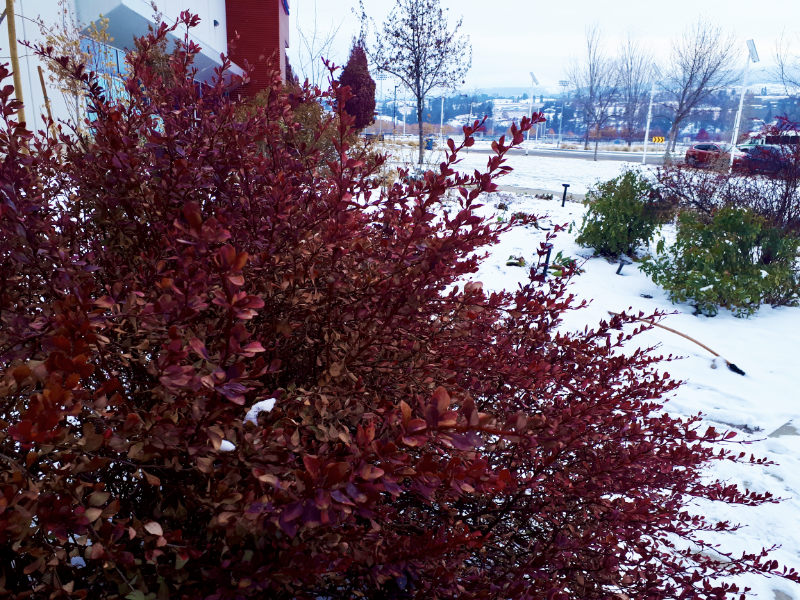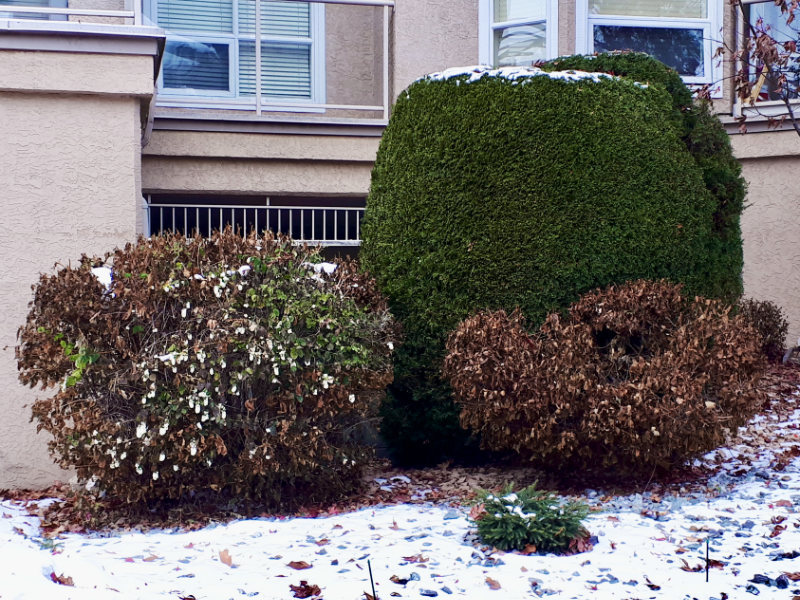Gardening with Nature
Article by Sigrie Kendrick
Avoid Pruning Stress
Few things are more irritating than seeing shrubs that the deer have pruned.
However, wrapping them in burlap to help them escape the ravages of these animals who are trying to survive winter’s icy blast is not the answer. Instead, browse our plant database and read our blogs on alternatives to the water-thirsty cedar hedge which is so attractive to deer.
What’s even more irritating is shrubs that have been sheared into box or vase shapes by a lazy landscaper or gardener. On an emotional level, I find it painful to see these trees and shrubs tortured into balls or squares, regardless of their natural form, especially if that natural shape is a particularly attractive one.
Pruning causes stress to the plant and as such should not be done without good reason.
Basic pruning requires little more than the removal of dead, damaged, or diseased wood to maintain the health of the plant.

Sigrie Kendrick is a Master Gardener and Executive-Director of the Okanagan Xeriscape Association. She can be reached at 778-363-8360 or by email at exec_dir@okanaganxeriscape.org.

